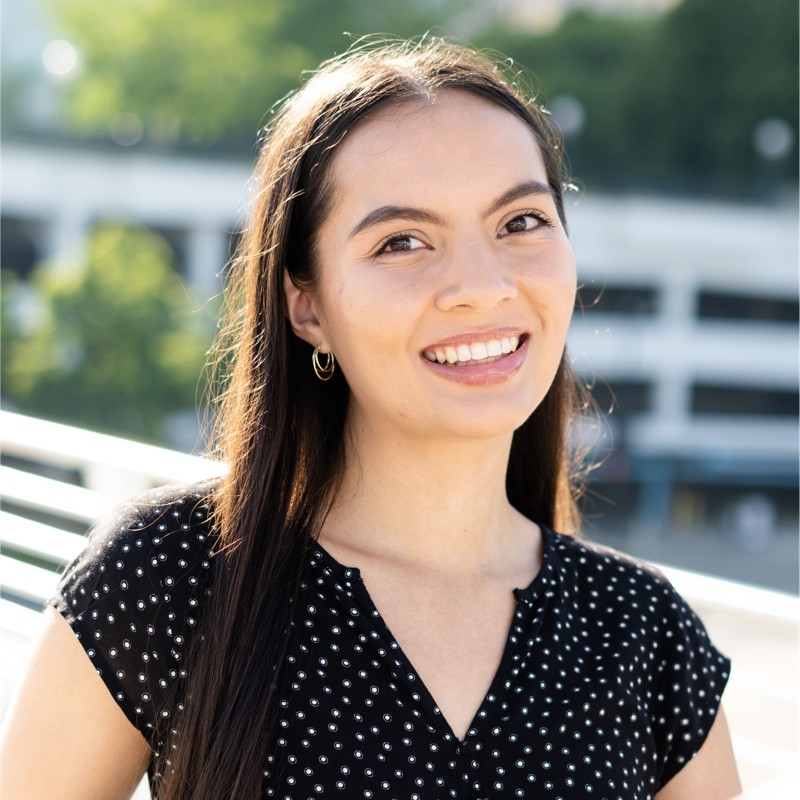NICHQ Intern Spotlight: Lucia (Lucy) Burzynski
 Lucia (Lucy) Burzynski (she/her) is a Marketing and Communications Intern this Summer at NICHQ. Born and raised in Milwaukee, she is currently a Master of Public Health student at Boston University specializing in Community Assessment and Program Design and Maternal and Child Health. Her Summer QI project is centered around spending more time with friends. Outside of her internship and school Lucy enjoys watching basketball, going for walks, and singing.
Lucia (Lucy) Burzynski (she/her) is a Marketing and Communications Intern this Summer at NICHQ. Born and raised in Milwaukee, she is currently a Master of Public Health student at Boston University specializing in Community Assessment and Program Design and Maternal and Child Health. Her Summer QI project is centered around spending more time with friends. Outside of her internship and school Lucy enjoys watching basketball, going for walks, and singing.
All NICHQ interns get the opportunity to participate in a weekly Quality Improvement (QI) course. Throughout the duration of their internship, interns develop a personal aim and apply QI methodology to their Personal Quality Improvement Project.
What brought you to the field of public health?
I’m quite new to public health – my background is in kinesiology and psychology. I love the human body and physical activity promotion, but I think during my undergraduate studies I saw a lack of a systems perspective when it came to initiatives in the field – there was often a focus on individual change and goals. We want everyone to be exercising and moving, but from my own personal experience, I know that requires the removal of systemic barriers. That’s where my shift to public health comes from – wanting a more macro-level view of the systems that create health, that prevent or promote opportunities for achieving health.
What MCH issue are you most passionate about?
Broadly, I’m passionate about health equity and health justice. I think primarily, health justice work that’s rooted in creating systems that work to serve Black and Brown children and families. Thinking about people that have been historically and systemically marginalized and oppressed and creating systems that work for them and are informed by their opinions. That’s something that I’m really passionate about – community work.
And then in general, child and family health, specifically for Black Indigenous People of Color (BIPOC) children and families is kind of the area that I’ve fallen into. As well as the impact of cities and how systems, particularly within cities, can shape health – and what improving health through dismantling and reshaping systems within cities looks like.
What projects are you working on this Summer at NICHQ?
Some of the work is writing insights and blogs for our website about some of our project work as well as our health equity work. Right now, I’m working on a piece for the National Action Partnership to Promote Safe Sleep Improvement and Innovation Network (NAPPSS-IIN) project. They’ve done a lot and they’ve had to adapt a lot over the course of their project, so I’m thinking about how that can provide some insight for our constituents. I’m also supporting the New York State Birth Equity Improvement project by creating an impact statement that will highlight all that New York State DOH has been able to accomplish and implement. In terms of internal work, I’m creating an Equity Language Guide to shape and guide communications at NICHQ, setting culturally humble expectations for how we talk and learn about things that we aren’t as familiar with. And then I run the Facebook and LinkedIn pages!
Who are you most excited to learn from at NICHQ?
Probably Jey (Weisgerber, Associate Director of Marketing and Digital Strategy)! They know so much not only about writing and communication but also about equity and NICHQ as an organization. They always know who to talk to or how to navigate an issue. They’ve been really understanding, meeting me where I’m at and providing guidance. We think similarly about of lot of things, so we have really natural conversations on a lot of topics.
What are your career aspirations for after your degree?
I really don’t know what my job will look like, I just know how it should feel. Ultimately it will have to come down to serving communities, serving children and their families, particularly in ways that are informed by community voice, community input, as well as real systems change.
How do you feel your work this Summer at NICHQ is helping move you towards those goals?
I think part of it is just giving me hope – just knowing that there are organizations that are super dedicated to this type of work, that are explicit about their intention to do this type of work, and then to know that within that, there are so many projects going on across the nation that are all rooted in this same mission.
There are people doing the work. Everyone I’ve met at NICHQ shows that there are people thinking about these things, there are people who are willing to ask these questions, there are people constantly pushing to do more and more and more for this work. That has shown me that this is happening. It’s real – it’s not just some aspirational thing to want to be a part of the work that’s making an impact.
